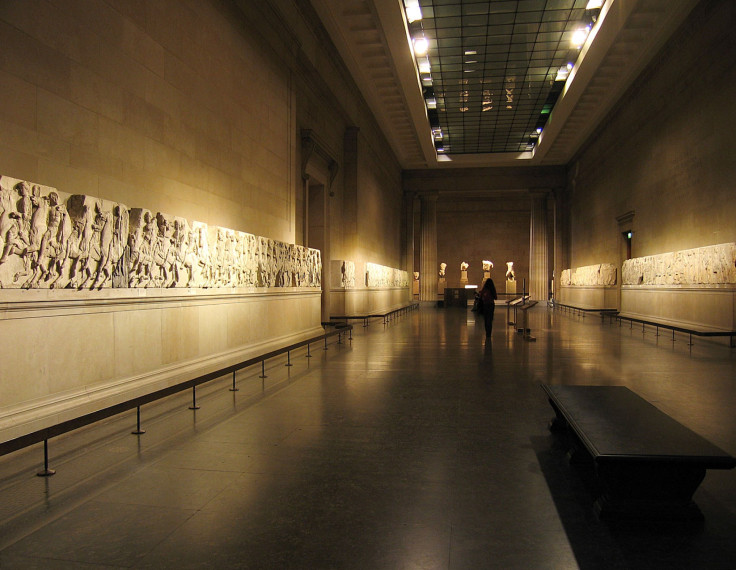A Game Of Marbles: Will Britain Ever Return Parthenon Treasures To Greece?

UK Prime Minister David Cameron has fired another volley in a long-running "culture war” by declaring that Britain won't return the famed “Elgin Marbles” to their original owner, Greece.
The marbles, which were originally part of the Parthenon Temple in Athens, were seized by agents of Scottish diplomat Thomas Bruce, or Lord Elgin, in the early 19th century, and later sold to the British Museum in London, where they remain to this day.
The flap over the Greek marbles recalls a dispute between Britain and its greatest colonial possession, India, over the legendary Koh-I-Noor diamond.
Last month, while he was visiting Amritsar, India, Cameron was asked by reporters if his government would return the priceless 105-carat diamond to India – in response, he inadvertently brought up the Greek marbles.
"I don't think that is the right approach,” he said.
“It's the same question with the Elgin Marbles and all these other things. I think the right answer is for the British Museum and other cultural institutions in Britain is to do exactly what they do, which is link up with museums all over the world ... to make sure that the things that we have and look after so well are properly shared with people around the world.”
He added: "No, I certainly don't believe in 'returnism', as it were. I don't think that is sensible."
The Elgin marbles were friezes and pediment figures that decorated the Parthenon, which was constructed between 447-432 BC. The BBC said that surviving sculptures are in the possession of both British and Greek authorities on an equal basis, and Athens' government has repeatedly demanded the British Museum return them all to Greece.
A UK-based group called the British Committee for the Reunification of the Parthenon Marbles has endorsed Athens’ demand.
Eddie O'Hara, the group's chairman, condemned Cameron’s intransigence for both the marbles and the diamond.
"The fact that [Cameron] conjoined two such widely differing cases as the Koh-I-Noor diamond and the Parthenon Marbles, and the fact that he called the latter the 'Elgin' Marbles suggests that he does not appreciate what a simplistic and inadequate concept 'returnism' is," he said.
O’Hara described the taking of the Parthenon marbles by Elgin as an “act of cultural vandalism.”
Between 1801 and 1812, Elgin, who served as Britain’s ambassador to the Ottoman Empire, and his agents not only stole marbles from the Parthenon, but also swiped sculptures and artifacts from the Propylaea, the entrance to the Acropolis in Athens; and the Erechtheion, an ancient temple near the Acropolis.
Historical records suggest Elgin had bribed the Ottoman Turks, who ruled Greece at the time, to steal the priceless Greek treasures.
The controversy over the Koh-I-Noor diamond is just as contentious. Last worn by the late Queen Mother, as she lay in state in her coffin in 2007, the diamond was “acquired” by the British in conjunction with the Treaty of Lahore in 1846, under which the region of Punjab fell into British possession.
India has repeatedly demanded the diamond's return.
The stone, which is now part of the crown of Queen Elizabeth, is the most expensive diamond in the world, Diamond Envy, which certifies jewels, said.
Indeed, the Koh-I-Noor diamond is believed to be so costly that it doesn't even have an estimated price; however, consider that the third most-valuable diamond in the world, the Cullinan Diamond, is valued around $400 million, experts said.
© Copyright IBTimes 2024. All rights reserved.





















